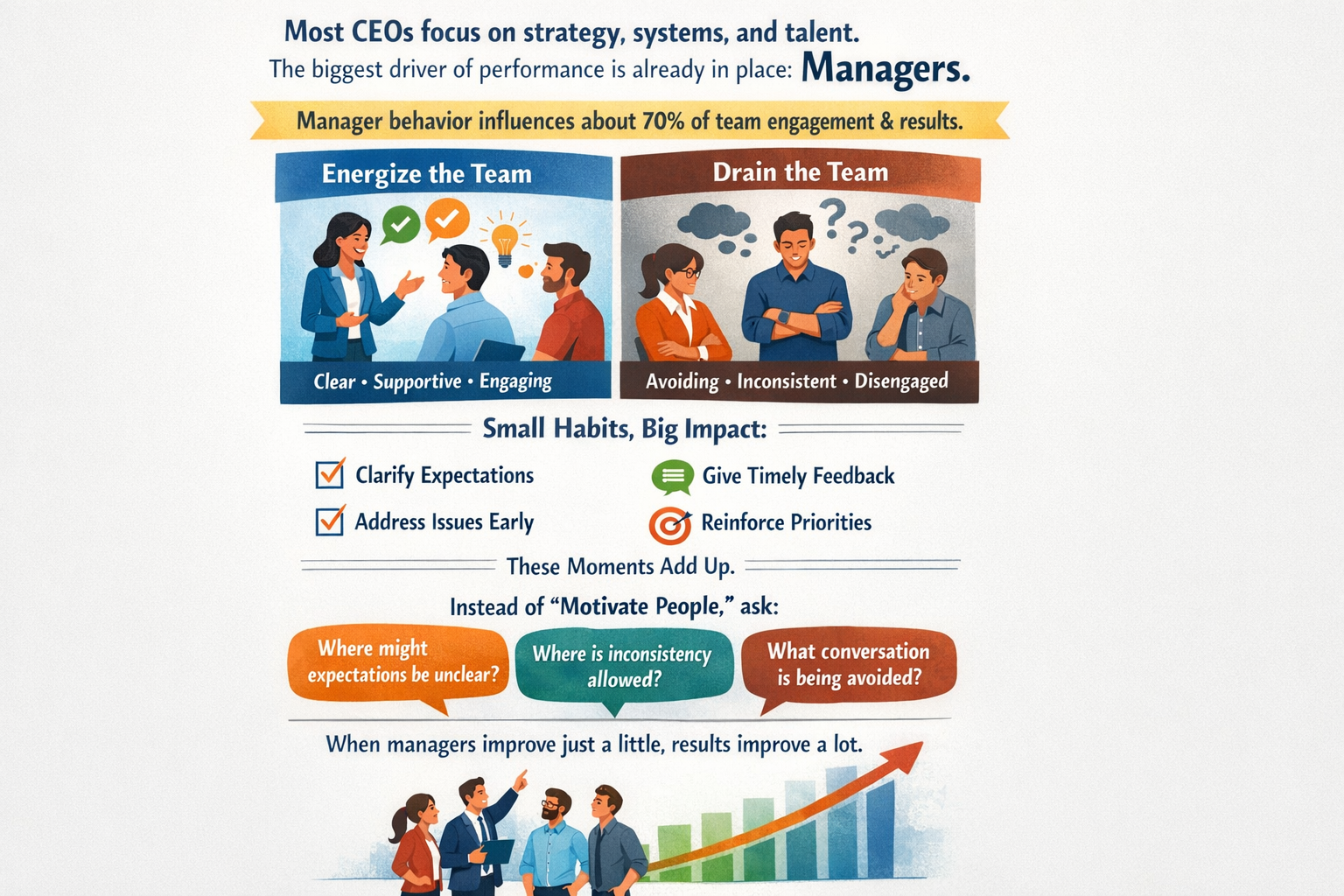Providing Employees with Frequent Feedback

When employees receive regular feedback on their performance, their productivity and morale, as well as the organization’s retention and bottom line, improve. Once leaders have set and communicated clear expectations and monitored employee progress and results, it is important to let them know how well they are performing.
When you catch employees doing something right, tell them so they know which tasks they are doing correctly. Their stress level falls because they know they are on the right track. This gives them more confidence in their work.
When you see that an employee is not meeting expectations, it is important to have a conversation with them, identify the bottleneck, and determine a corrective action. Employees may lack appropriate equipment and tools, not fully understand expectations, or need more training.
Nobody likes negative feedback, so few people underperform intentionally. Many are afraid of being fired if they approach their manager to ask for help. Studies show that most employees are very thankful for negative feedback if it is followed by a plan to correct their performance, helping them be successful. So, it is important that leaders have the courage to address underperformance in a calm manner which helps the team member become a valued employee.
The frequency of praise and corrective feedback varies with the employee’s competence and confidence. When an individual is new to a task, it is appropriate to provide feedback every few minutes initially, dropping back to hourly, and then daily. As people become more familiar with a task, positive and corrective feedback can become less frequent. However, to build and maintain an engaged and productive workforce, it is important that managers acknowledge even highly competent individuals at least weekly.


